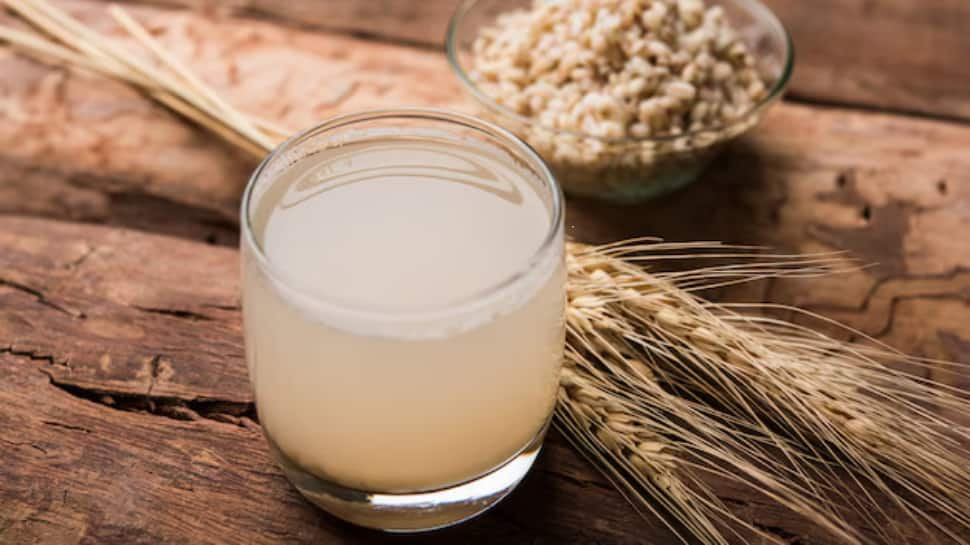Barley water is far more than just an age-old cooling drink for hot days. Recognised in many parts of the world, this traditional, detoxifying, and hydrating beverage has been valued for centuries for its impressive range of health benefits. With its mild, nutty flavour, barley water not only refreshes but also supports overall wellbeing in several surprising ways.
Like rice or wheat, barley (known as jao in India) is a cereal grain that has long been consumed as a staple food in many cultures. When barley is simmered gently in water and then strained, it creates a simple yet nourishing drink that can be enjoyed plain or enhanced with a squeeze of lemon juice and a touch of honey or other natural sweeteners.
Remarkable Health Benefits of Barley Water:
1. High in Fibre
Barley water is naturally rich in both soluble and insoluble fibre. This helps to keep your digestive system functioning smoothly by promoting regular bowel movements and supporting the growth of beneficial gut bacteria.
2. Monitors Cholesterol Levels
barley water can be beneficial for managing cholesterol levels. This is primarily due to the soluble fiber, beta-glucan, present in barley. Beta-glucan helps bind to cholesterol in the digestive system, preventing its absorption and promoting its removal from the body.
3. May Help With Weight Loss
Although barley itself isn’t especially low in calories, its high fibre content can help manage appetite by keeping you feeling fuller for longer. This feeling of satiety can help reduce the likelihood of overeating or snacking between meals, making it a gentle yet effective companion to a balanced diet aimed at maintaining a healthy weight.
4. Promotes Digestive Health
Barley water is soothing for the digestive tract and helps maintain a healthy balance of gut bacteria. It can aid in preventing constipation and reducing bloating, while its natural mucilage content may help protect the stomach lining, offering relief from minor irritations.
5. Boosts Immunity
Barley water is a source of essential vitamins and minerals, including B vitamins, iron, magnesium, and zinc. These nutrients play vital roles in maintaining a robust immune system, supporting the production of immune cells, and helping the body recover more efficiently from illness.
6. Rich in Antioxidants
Barley water contains Antioxidants that may helps combat oxidative stress in the body. Antioxidants neutralise harmful free radicals, which may reduce the risk of chronic diseases and slow the visible signs of ageing, leaving you feeling healthier and more energised.
7. Hydrating and Detoxifying
Naturally hydrating, barley water helps flush out toxins from the body and supports kidney health. It can act as a gentle diuretic, encouraging healthy urine production and helping the body cleanse itself more effectively.
8. Supports Heart Health
Alongside its cholesterol-lowering effects, barley water’s magnesium and potassium content helps regulate blood pressure, reducing strain on the cardiovascular system. Regular consumption may contribute to maintaining healthy heart rhythm and overall cardiovascular wellbeing.
How to Make Barley Water at Home:
• Rinse the barley thoroughly under cold running water to remove any dust or impurities.
• Place the barley in a large saucepan with the water.
• Bring to the boil, then reduce the heat and let it simmer gently for around 30 – 40 minutes, or until the barley grains are soft.
• Strain the mixture through a fine sieve into a jug or bowl, discarding the grains or you can keep them to add to soups or salads.
• Allow the barley water to cool slightly, then add lemon juice and a little honey or sweetener if desired.
• Serve chilled or warm, depending on preference.
Barley water offers a surprising array of health benefits, from supporting digestion and heart health to strengthening immunity. By preparing this humble drink at home, you can enjoy its refreshing taste and help boost your overall well-being naturally.
(This article is meant for informational purposes only and must not be considered a substitute for advice provided by qualified medical professionals.)

